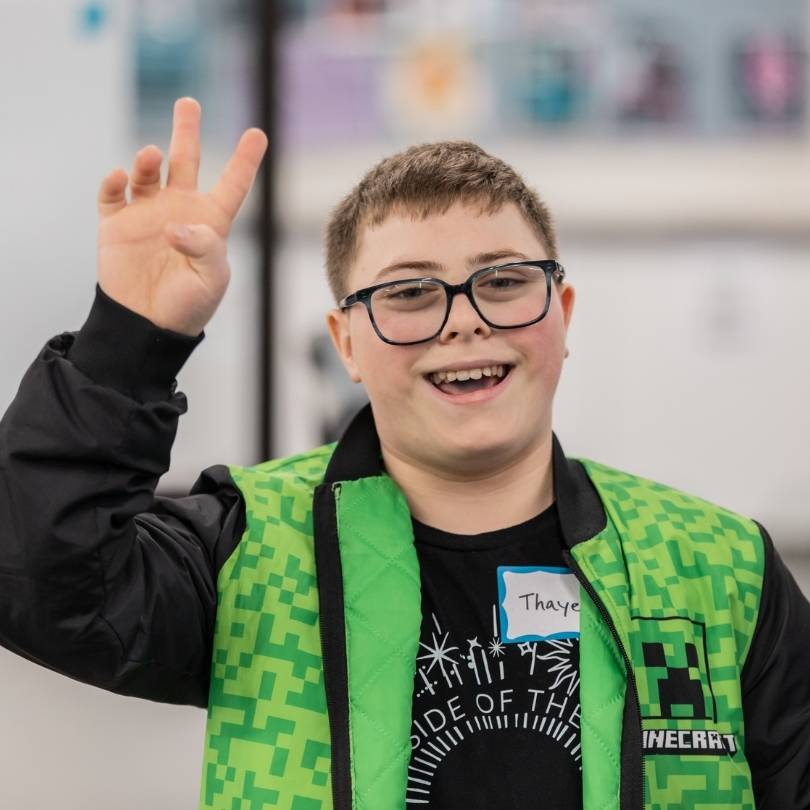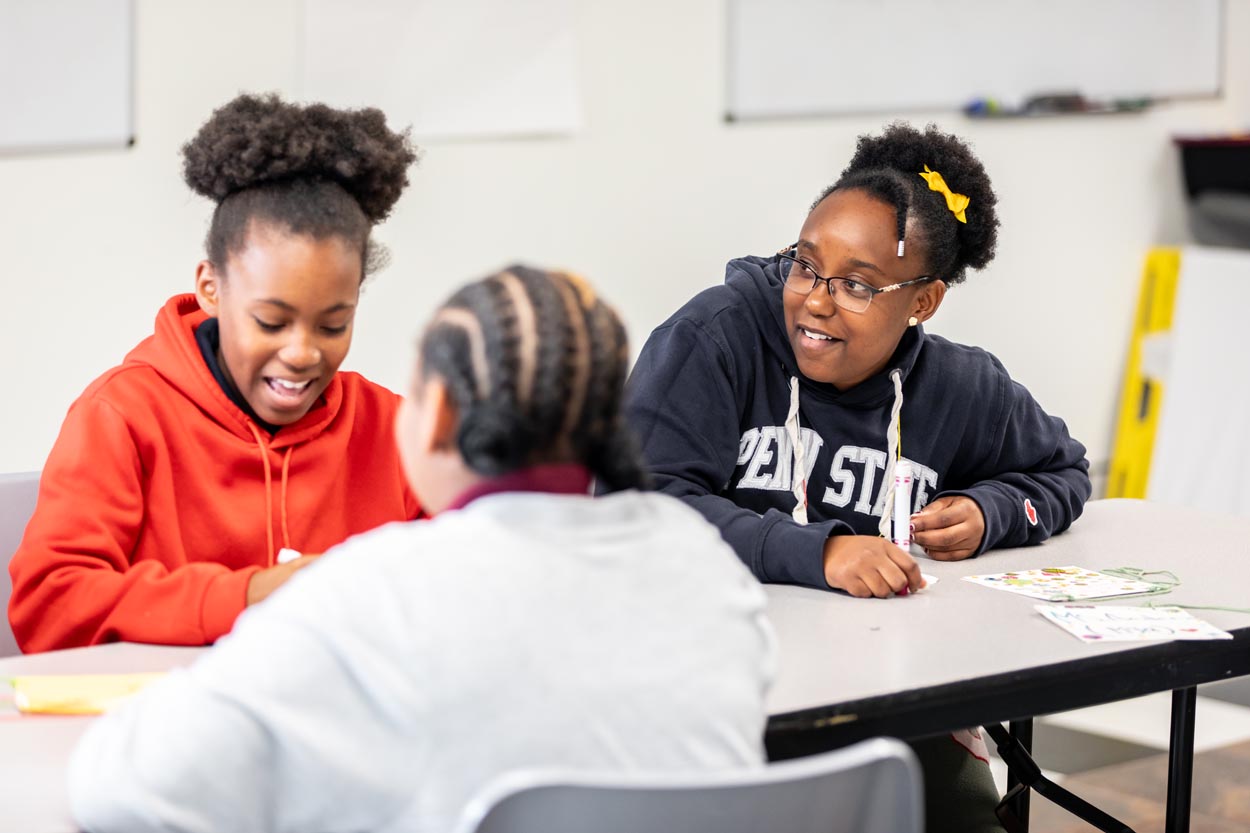Mentoring
Built upon evidence-based research, our programs are designed to increase key protective factors in the lives of our students. Examples of protective factors include hope, empathy, gratitude, and a growth mindset.
Why Mentoring?
Our research-based approach adjusts to the needs and resources of each site to best equip mentors to conduct activities that build protective factors for adolescents, such as empathy, healthy coping skills, a growth mindset, and hope.

Emotional Validation
Active Listening
Emotional Awareness and Regulation
Problem-Solving and Perspective-Taking
Modeling Healthy Emotional Expression


The Mentor Project
Our formal mentoring program, The Mentor Project, has been designed for middle school aged students. Using a multitiered approach, trained Behrend college students partner with school staff members and community volunteers to run a one-hour weekly program at schools across Erie County. These activity-based sessions focus on building connection and resilience which teaching evidence-based protective factors.
Research-Based Curriculum
Using a strengths-based approach, every session at The Mentor Project has been crafted around developing one protective factor to optimize student success. Several of these protective factors are backed by research published by faculty and faculty affiliates at CORE.
- Growth Mindset
- Empathy
- Hope
- Connection
- Resilience
In partnership with CORE’s Research & Evaluation team, The Mentor Project relies on pre and post data to evaluate the effectiveness of the program. Schools can receive one-page reports offering data from control and treatment groups of the entire grade level within The Mentor Project.
The Mentor Portal
If you currently serve in the Mentor Project with Susan Hirt Hagen CORE, the Mentor Portal will be a helpful resource to equip you for your role.

Schoolwide Mentoring
Effective mentoring practices create meaningful change for individual students and your school culture as a whole. Our team works alongside your school to design a mentoring program that fits your school’s needs, provides training for mentors, and offers evaluation for subsequent data-driven decisions.
This service is custom-designed to meet your unique needs, using a whole-school approach.
Teachers as Mentors
Holistic Approach
Ongoing Consultation and Support
Training

Kristin Hesch, M.S.
Associate Director of Community Outreach
Lecturer, Psychology
Kristin Hesch developed an interest in youth and adolescents while pursuing her Psychology degree at Penn State Behrend, including an internship with The Ophelia Project. She obtained her master's degree in organizational leadership from Mercyhurst University, with a research thesis focused on the roles of empathy and forgiveness in relational aggression. Kristin has spent the past 20 years mentoring middle and high school students in the Erie community through training, speaking, and facilitating networks of connection. Kristin speaks with passion, clarity, and enthusiasm for progress. As an Erie County native, Kristin brings to CORE a passion for strengthening the next generation of our community through partnerships and collaborative efforts.
![CORE_Tier3_Horz_Reverse_FullColor[11] Penn State Behrend CORE Logo](https://core.psu.edu/wp-content/uploads/2025/09/CORE_Tier3_Horz_Reverse_FullColor11-scaled.png)